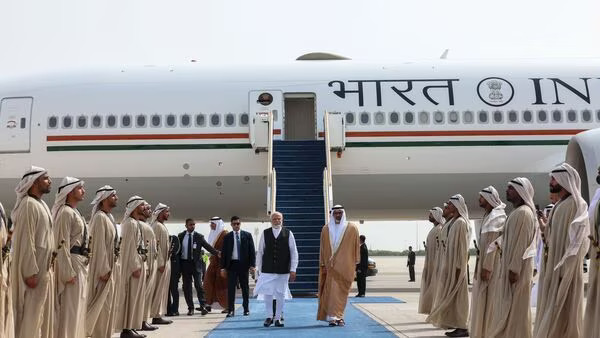Harshita Mathur, Pune
On a daylong visit, Indian Prime Minister Narendra Modi on 15 July landed in UAE in order to strengthen bilateral ties with President Sheikh Mohamed bin Zayed Al Nahyan of the Arab Emirates. The visit primarily focuses on areas like defense, food security, and energy.
Modi, speaking about his visit to the UAE, said, “Our two countries are engaged across a wide range of sectors such as trade, investments, energy, food security, science and technology, education, fintech, defense, security, and robust people-to-people ties,”. In the display of hospitality, the colors of the Indian national flag were lit on Dubai’s Burj Khalifa along with the Indian Prime Minister’s picture and a quote that said, “Welcome honorable Prime Minister Narendra Modi”.
Following a successful two-day trip to Paris, where he participated in the Bastille Day parade alongside French President Emmanuel Macron as the Guest of Honor and inked many agreements to further bilateral ties, Modi headed for his final leg. Against the backdrop of the Covid-19 outbreak, the signing of the Comprehensive Commercial Partnership Agreement (CEPA) was a watershed moment in India-UAE commercial relations. The two countries have subsequently collaborated on a variety of projects, including commerce, investments, energy, guaranteeing food security, developing research and technology, boosting education, supporting fintech innovation, increasing defense cooperation, and establishing strong interpersonal relationships.
The UAE and India have a bilateral trade volume of over USD 84 billion, with the UAE serving as India’s second and third-largest export market and trading partner, respectively. The UAE is India’s second-largest supplier of LNG and LPG and its third-largest supplier of crude oil, making it a vital ally for the country’s energy security.
